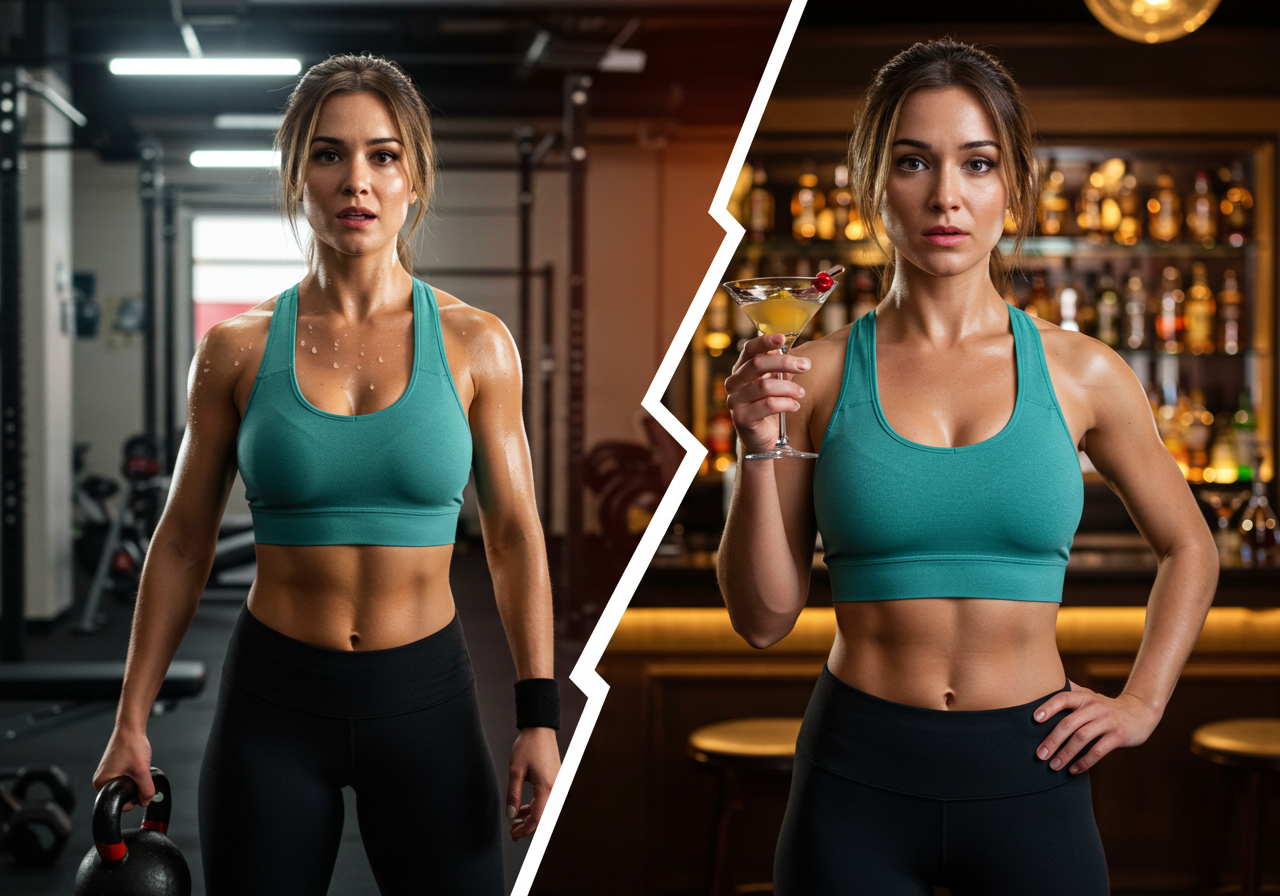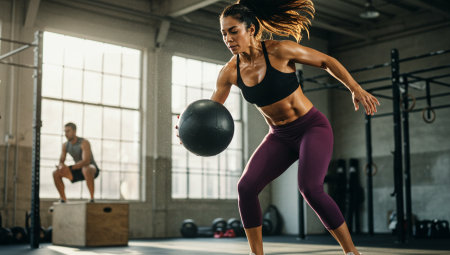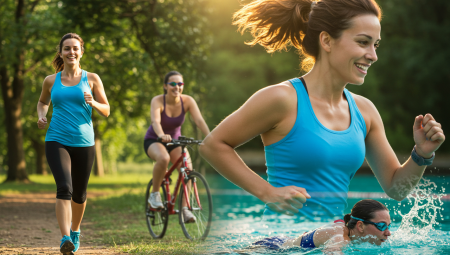What’s the Impact of Alcohol on Fitness Goals?

When you’re chasing fitness goals—whether it’s shedding a few pounds, building muscle, or boosting endurance—every choice counts. One factor that often sneaks into the equation is alcohol. You might enjoy a cold beer or a glass of wine after a long day, but have you ever stopped to consider how those drinks affect your progress? Let’s break it down, starting with the calorie conundrum. A quick glance at the nutritional info on your go-to beverage might shock you. A couple of cocktails can push you past your daily calorie limit faster than you can finish a set of squats. Those are what we call “empty calories”—they don’t fuel your body, support muscle growth, or power your workouts. Instead, they linger like an uninvited guest, adding weight without value.
Then there’s the hydration hurdle. Alcohol acts as a diuretic, meaning it speeds up water loss in your body. Picture this: you’re raising a glass to toast, but your muscles are quietly crying out for hydration. Proper water intake is non-negotiable for peak performance—dehydration zaps your energy, slows muscle recovery, and leaves you feeling sluggish. It’s like trying to sprint with a backpack full of bricks. So, when someone asks, “What’s the Impact of Alcohol on Fitness Goals?” hydration—or the lack of it—is a big piece of the puzzle.
Sleep takes a hit too. After a night of drinking, you might crash hard, but the quality of that rest? Not so great. Poor sleep messes with muscle repair, muddies your focus, and can even crank up cravings for junk food the next day. Imagine waking up groggy, skipping the gym, and reaching for a donut instead of your protein shake. That’s alcohol quietly sabotaging your efforts. So, next time you’re debating a night out versus your fitness ambitions, think about this: a couple of drinks could mean missed workouts or stalled progress. Finding balance is key, but understanding what’s the impact of alcohol on fitness goals can steer you toward smarter choices.
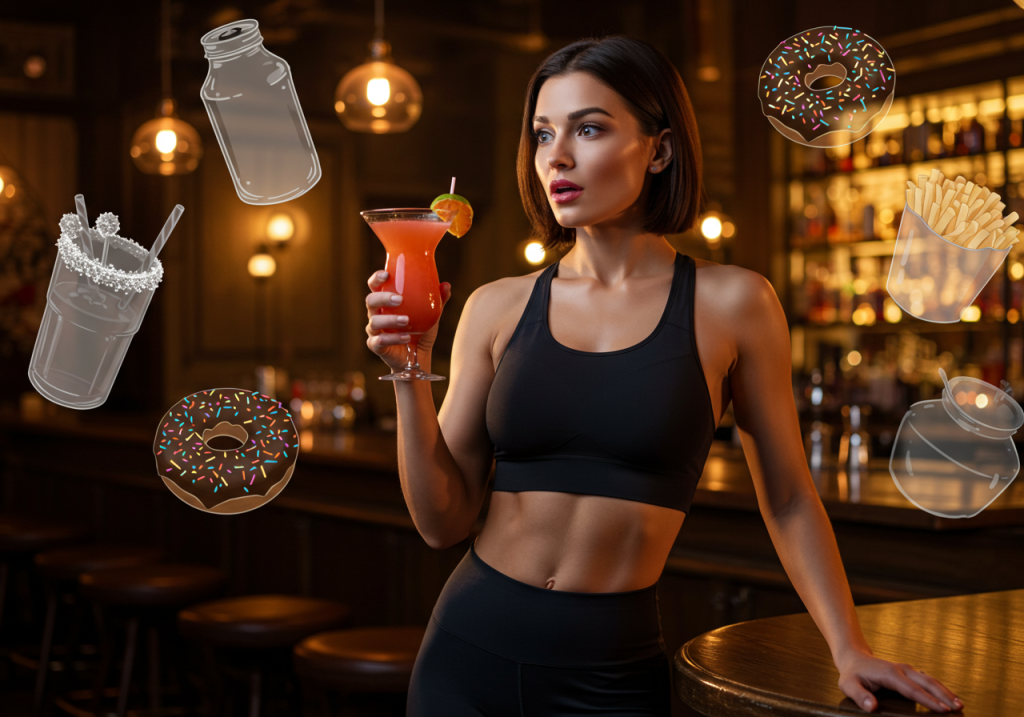
Cheers or Jeers? Unpacking the Impact of Alcohol on Your Fitness Journey
Let’s face it—alcohol has a way of crashing your fitness party. One minute you’re lacing up your sneakers, ready to crush it; the next, you’re sprawled on the couch, remote in hand, after a few too many drinks. Does it always have to spell disaster? Not quite. Moderation can be your saving grace. A glass of red wine, for instance, might even bring some perks—like antioxidants that support heart health. It’s like adding a pinch of spice to a bland meal; a little can enhance the experience without ruining the recipe.
But then there’s the flip side: the dreaded hangover. We’ve all been there—crawling out of bed, head pounding, and motivation nowhere to be found. When you’re nursing a hangover, that 5K you’ve been training for suddenly feels like climbing Mount Everest. And those extra calories from a frothy beer or sugary mixer? They pile on, making every lunge and deadlift feel heavier than it should. So, what’s the impact of alcohol on fitness goals here? It’s a tug-of-war between enjoyment and effort.
Where do you draw the line? Should you cheers to good times or bid farewell to the bottle? The sweet spot lies in balance. Think of it like walking a tightrope—lean too far toward indulgence, and your goals slip away; lean too far toward restriction, and life loses some joy. It’s about making choices that keep you energized and on track. How do you navigate this in your own journey? Reflecting on what’s the impact of alcohol on fitness goals might just help you find your footing.
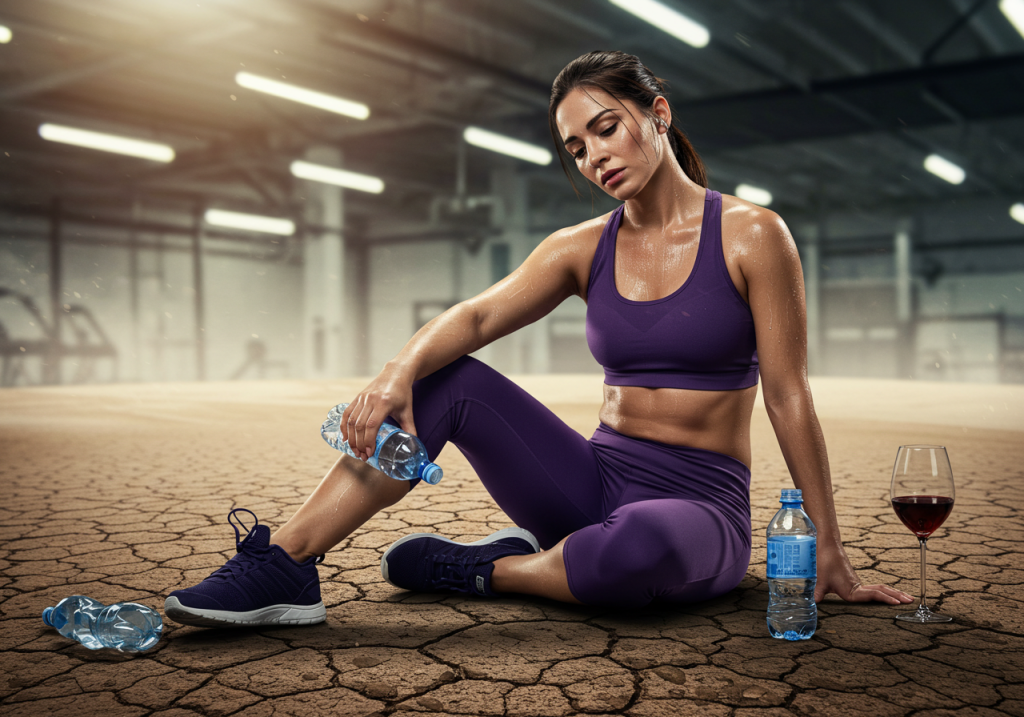
Sipping Smart: How Alcohol Consumption Can Sabotage Your Fitness Goals
Popping open a beer or pouring a cocktail isn’t just a social ritual—it’s a calorie bomb waiting to explode. A single mixed drink can clock in at 500 calories or more, and those numbers don’t come with a side of protein or vitamins. It’s like eating cotton candy for dinner—tasty but useless for your body. When you’re working hard to sculpt your physique or boost stamina, those empty calories can quietly undermine every rep and mile. That’s a critical piece of answering what’s the impact of alcohol on fitness goals.
Now, let’s talk about the morning after. A hangover isn’t just a headache—it’s a full-body rebellion. You’re guzzling water, trying to shake the fog, but your planned gym session? Out the window. Instead of lifting weights, you’re lifting the TV remote. Hangovers tank your energy and willpower, turning a productive day into a recovery mission. And those calories from the night before? They’re still hanging around, mocking your efforts.
Then there’s the craving trap. Alcohol has a knack for nudging you toward greasy, salty, or sugary snacks—think late-night pizza or a pile of wings. One drink can snowball into a buffet of bad decisions, leaving your nutrition plan in shambles. So, what’s the impact of alcohol on fitness goals in this scenario? It’s a domino effect—calories, fatigue, and cravings all conspiring against you. Next time you’re tempted to sip, weigh the cost. Is that buzz worth stalling your progress? Your goals don’t take a break, so every drink deserves a second thought.
In the Balance: Navigating the Fine Line Between Fitness and Alcohol
Imagine you’ve just nailed a tough workout—sweat dripping, endorphins pumping—and a friend texts about happy hour. The pull is real, but so are the stakes. Alcohol can throw a curveball at your fitness routine in multiple ways. Those empty calories stack up fast, dehydration saps your strength, and a hangover can turn your next training session into a strugglefest. It’s a tricky spot to be in, and it begs the question: What’s the impact of alcohol on fitness goals when you’re caught between fun and focus?
Here’s the good news: a drink or two doesn’t have to spell doom. Think of alcohol like salt in a recipe—a dash can add flavor without ruining the dish. Opt for lighter choices, like a spritz or a glass of dry wine, over syrupy cocktails. You’ll keep the vibe alive without overloading your system. The trick is moderation and mindfulness. It’s like balancing on a seesaw—tip too far toward indulgence, and your gains take a hit; swing too far toward abstinence, and you might miss out on life’s little joys.
Your body’s signals are your guide. If you’re dragging the next day, feeling parched or foggy, that’s a clue to rethink your approach. What’s the impact of alcohol on fitness goals if you listen to those cues? It’s empowerment—knowing when to sip and when to skip. Finding that equilibrium lets you enjoy a night out without derailing your hard-earned progress. How do you walk that line in your own life?
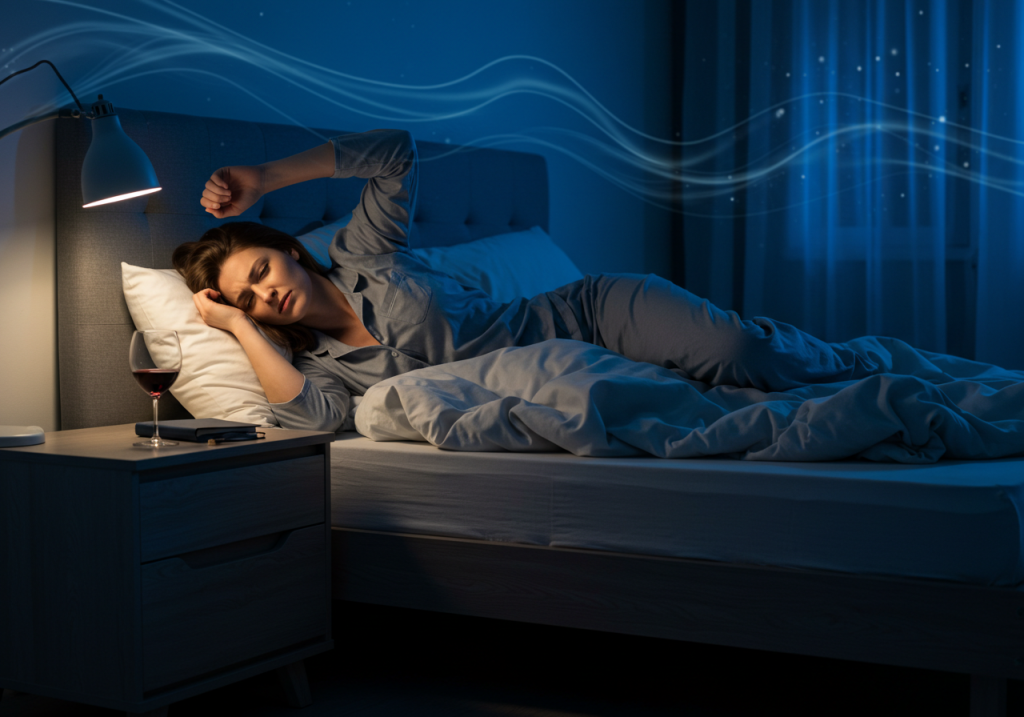
Raise a Glass — But Know the Cost: The Unseen Effects of Alcohol on Workout Performance
Your body is a finely tuned machine. Feed it well—think lean proteins, complex carbs, and plenty of water—and it hums along, crushing workouts and recovering strong. But pour in a few drinks, and that engine starts to sputter. Alcohol slows muscle repair, ramps up soreness, and throws off your recovery timeline. After a tough session, your body craves rest and nutrients to rebuild—not a toxin to process. That’s a hidden cost worth pondering when you ask, what’s the impact of alcohol on fitness goals.
Sleep gets hit hard too. Sure, a drink might knock you out initially, but it wrecks the deep, restorative REM sleep your muscles and mind need. It’s like swapping a cozy bed for a bumpy road—restful it’s not. The next day, you’re slogging through your workout, wondering why you feel so off. Add dehydration to the mix—alcohol strips your body of water, leaving you parched and lethargic—and you’ve got a recipe for a lackluster performance. It’s like trying to run a race with flat tires.
And those late-night munchies? Alcohol often nudges you toward greasy takeout, piling on the damage. So, while a toast might feel carefree, what’s the impact of alcohol on fitness goals in the long run? It’s a slow leak in your progress—easy to ignore until you’re stuck climbing back up. Enjoy that glass if you must, but know the price you’re paying.

Drinking and Training: Can You Have Both Without Compromise?
Picture this: you’ve just smashed a killer workout, high-fiving your gym buddy, and later you’re clinking glasses at a bar. Can this dream coexist with your fitness goals? Absolutely—with some savvy moves. It starts with mindfulness. “Mindful drinking” isn’t just a buzzword; it’s about tuning into how alcohol affects you and choosing wisely. Swap sugary margaritas for a low-calorie beer or a vodka soda. Your muscles—and your waistline—will thank you.
Timing matters too. Chugging a drink right after a sweat session might zap your recovery window, but waiting a few hours gives your body time to refuel properly. Pair that with a hydration hack: match every drink with a glass of water. It’s like padding your system against alcohol’s drying effects. So, what’s the impact of alcohol on fitness goals when you play it smart? It’s minimal—if you keep it in check.
You don’t have to choose between a social life and a strong body. With intentional choices, you can sip without slipping. It’s about weaving enjoyment into your routine without unraveling your hard work. Cheers to that kind of balance! How do you make it work for you?

Booze and Gains: What Every Fitness Enthusiast Should Know About Alcohol
Alcohol isn’t your arch-nemesis, but it’s not exactly your workout buddy either. One night of indulgence can load you up with empty calories—think of a cocktail as a cheeseburger in liquid form. While you’re savoring the buzz, your body’s busy processing a toxin, not building muscle. That’s a direct hit to your gains, slowing recovery and dulling your next session’s edge. What’s the impact of alcohol on fitness goals for a dedicated enthusiast? It’s a stealthy setback.
Ever heard of the rebound effect? After drinking, you might push harder at the gym to “make up” for it, but your body’s still reeling. It’s like blowing up a balloon only to watch it deflate—progress stalls. Hydration takes a beating too. Alcohol dries out your muscles, leaving them stiff and prone to cramps. That morning-after headache? A sign your system’s running on fumes.
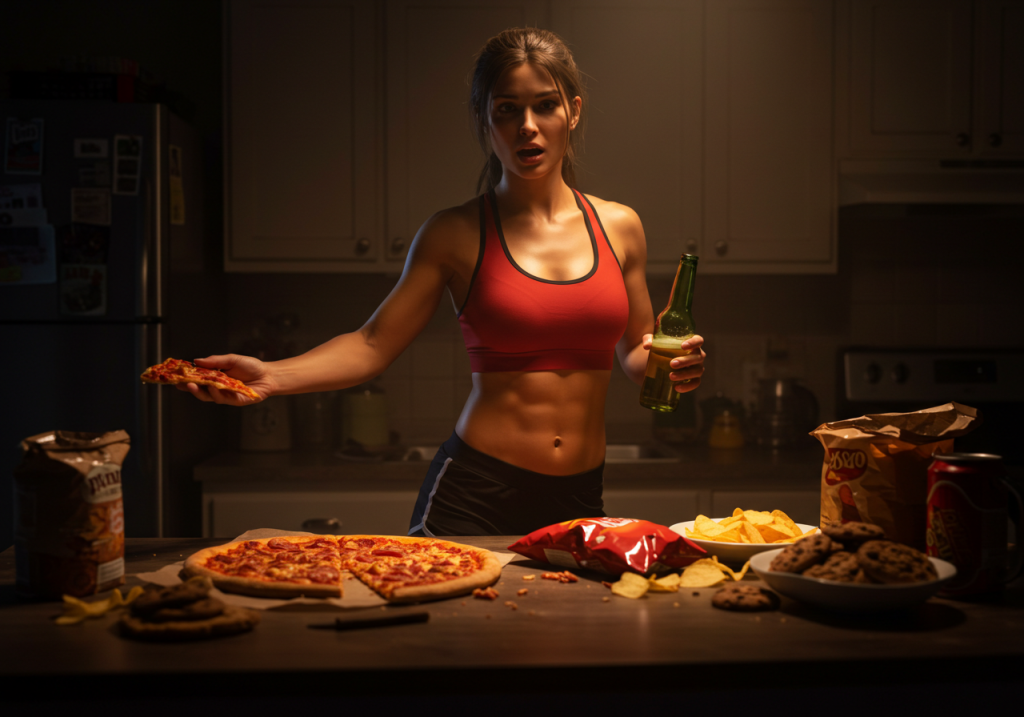
The fix? Sip strategically. Go for lighter options—think a gin and tonic over a piña colada—and keep water handy. What’s the impact of alcohol on fitness goals when you’re proactive? It shrinks. You can enjoy a drink and still chase those gains, as long as you strike a harmony between fun and focus. It’s your call—how do you keep the balance?

